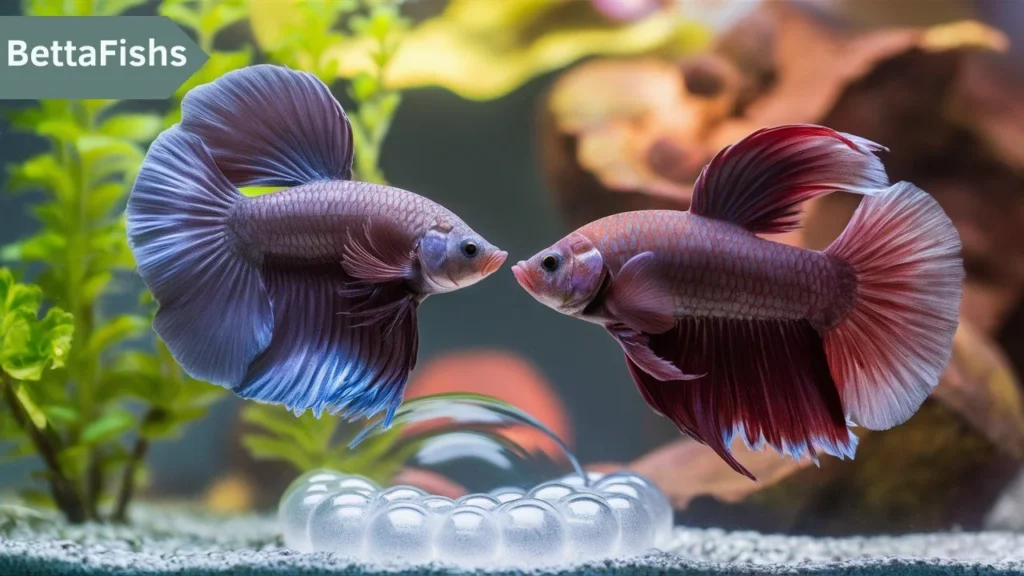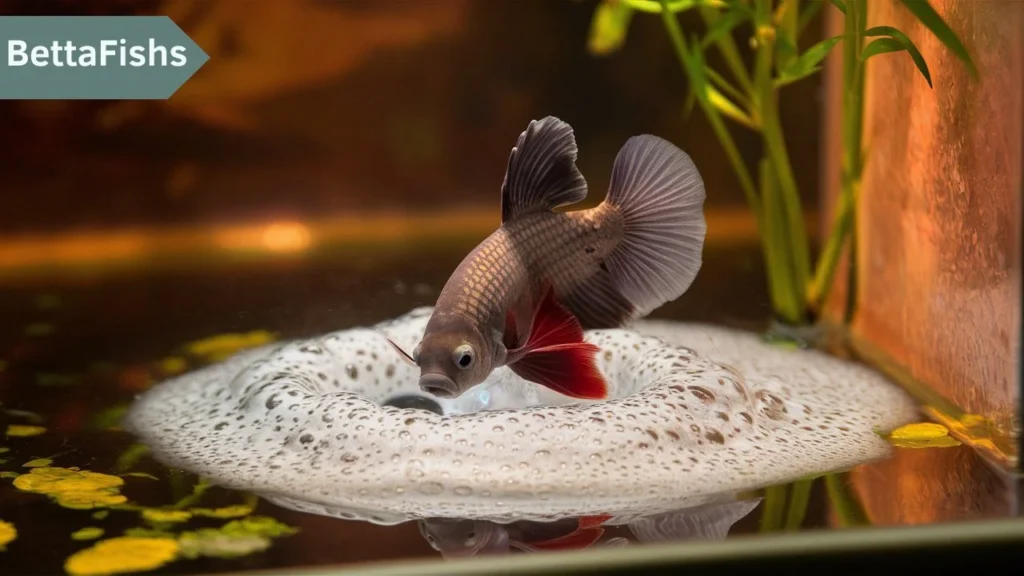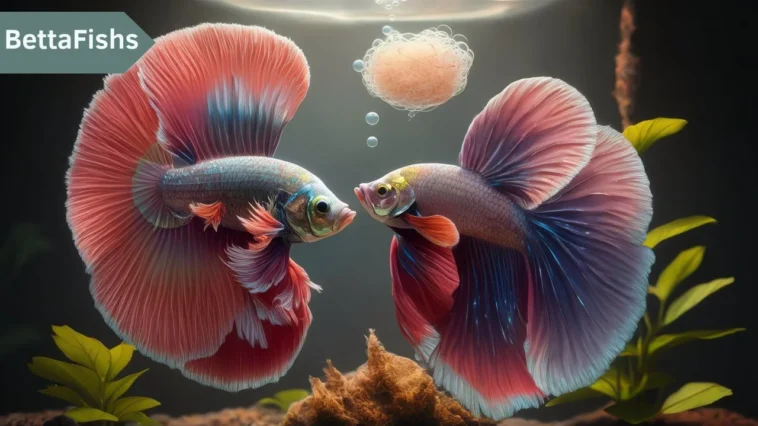Betta fish are fascinating creatures with vibrant colors and unique personalities. If you’re a Betta owner, you’ve probably wondered at some point whether your fish is pregnant. The breeding process and signs of pregnancy in Betta fish can be tricky, but don’t worry this guide will walk you through everything you need to know. In this article, we cover “How can you tell if a Betta fish Is pregnant?” in detail.
Betta Fish Breeding
Betta fish breeding is an exciting but challenging process. Unlike many other fish species, Betta fish have a unique way of reproducing, involving bubble nests and a fascinating courtship ritual. Knowing the basics of how Betta fish breed is essential for identifying pregnancy and ensuring the health of both the female and the potential fry.
Betta Fish Reproduction
Male vs. Female Betta Fish
Before we dive into pregnancy signs, it’s crucial to differentiate between male and female Betta fish. Males are typically more colorful and have longer, flowing fins, while females are smaller with shorter fins. Recognizing these differences is the first step in understanding Betta fish reproduction.
The Mating Process
Betta fish do not get “pregnant” in the usual sense. Instead, the female Betta fish carries eggs, which are then fertilized by the male. The male Betta builds a bubble nest, and after an elaborate courtship, the female releases her eggs, which the male fertilizes and places in the nest.
Signs Your Betta Fish Is Carrying Eggs
So, how can you tell if your female Betta is carrying eggs? Here are the main indications to look for:
Swollen Belly
One of the most obvious signs is a swollen belly. If your female Betta’s abdomen looks larger than usual, she might be carrying eggs.
Vertical Stripes on the Body
Another sign is the appearance of vertical stripes on her body. These stripes, known as “breeding bars,” are a good indicator that your Betta is ready to mate.
Increased Aggression
Female Bettas may become more aggressive or territorial when they are carrying eggs. This behavior is often a sign that she is ready to spawn.

Preparing for Breeding
If you suspect your Betta fish is ready to breed, there are several steps you should take to prepare:
Setting Up a Breeding Tank
A separate breeding tank is essential for Betta fish reproduction. The tank should be shallow, with warm water and plenty of hiding spots for the female.
Conditioning the Betta Fish
Before breeding, both the male and female Bettas need to be conditioned with high-quality food. This ensures they are in prime condition for the breeding process.
The Spawning Process
Once your Bettas are ready, the spawning process begins:
The Bubble Nest
The male Betta will build a bubble nest at the water’s surface. This is where he will place the fertilized eggs after the female releases them.
Courtship and Mating
The courtship involves the male displaying his fins and flaring his gills to impress the female. If she is receptive, she will follow him to the bubble nest, and the spawning process will begin.
Egg Laying and Fertilization
During spawning, the female releases her eggs, which the male fertilizes and places in the bubble nest. The female may release anywhere from 10 to 50 eggs at a time.
Caring for the Eggs and Fry
After the eggs are fertilized, the male Betta takes on the role of caretaker:
Male Betta’s Role
The male Betta guards the bubble nest and ensures the eggs remain safe until they hatch.
Hatching and Early Fry Care
The eggs will hatch within 24 to 48 hours, and the fry will remain in the bubble nest for a few more days until they are strong enough to swim on their own.

Common Challenges in Betta Breeding
Breeding Betta fish is not without its challenges. Some common issues include:
Failed Spawns
Sometimes, the female may not be receptive, or the male may not build a proper bubble nest.
Egg Fungus
Fungal infections can affect the eggs, causing them to die before they hatch.
Conclusion
The signs of pregnancy in Betta fish and the breeding process is key to successfully raising Betta fry. With careful observation and proper care, you can ensure a successful breeding experience.
FAQs
Can Betta fish lay eggs without a male?
Yes, female Betta fish can lay eggs without a male, but the eggs will not be fertilized and will not hatch.
How long does it take for Betta eggs to hatch?
Betta eggs typically hatch within 24 to 48 hours after fertilization.
What should I feed Betta fry?
Betta fry should be fed infusoria or specially formulated fry food until they are large enough to eat baby brine shrimp.
How many eggs can a female Betta lay?
A female Betta can lay anywhere from 10 to 50 eggs at a time, depending on her health and age.
Do Betta fish eat their eggs?
Yes, both male and female Bettas may eat the eggs if they are stressed or if the breeding environment is not ideal.





3 Comments
Leave a Reply3 Pings & Trackbacks
Pingback:How to tell if Betta fish is pregnant?
Pingback:How many eggs do Betta fish lay?
Pingback:Can Betta fish breathe air?